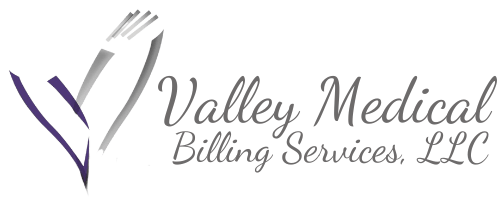Understanding Medical Billing Compliance: A Guide for Healthcare Providers
In the complex landscape of healthcare, medical billing compliance is critical to ensure that healthcare providers adhere to legal and ethical standards when submitting claims for reimbursement. Proper compliance not only safeguards against legal repercussions but also enhances the efficiency and reputation of medical practices.
What Is Medical Billing Compliance?
Medical billing compliance involves adhering to federal, state, and payer-specific regulations and guidelines when processing and submitting medical claims. This ensures that healthcare services are billed accurately and ethically, preventing fraud, waste, and abuse in the healthcare system. Key regulations governing medical billing include the Health Insurance Portability and Accountability Act (HIPAA) and guidelines from the Centers for Medicare & Medicaid Services (CMS).
The Importance of Accurate Medical Coding
Accurate medical coding is the cornerstone of billing compliance. It ensures that the services provided are correctly documented and billed, which is essential for:
- Preventing Fraud and Abuse: Proper coding helps avoid upcoding or undercoding, practices that can lead to significant legal issues and financial penalties.
- Ensuring Proper Reimbursement: Accurate codes facilitate timely and appropriate payment from insurance companies, maintaining the financial health of the practice.
- Maintaining Patient Trust: Transparent and correct billing practices enhance patient satisfaction and trust in the healthcare provider.
Key Components of a Medical Billing Compliance Program
Implementing a robust compliance program involves several critical elements:
1. Regular Staff Training and Education
Continuous education ensures that billing staff stay updated on the latest coding standards and regulatory changes, reducing the risk of errors.
2. Internal Audits and Monitoring
Conducting regular internal audits helps identify and correct potential compliance issues before they escalate, ensuring ongoing adherence to billing regulations.
3. Clear Policies and Procedures
Establishing and documenting clear billing policies provides staff with guidelines to handle various billing scenarios consistently and correctly.
4. Effective Communication Channels
Encouraging open communication allows staff to report potential compliance concerns without fear of retribution, fostering a culture of transparency and accountability.
Challenges in Medical Billing Compliance
Healthcare providers often face challenges in maintaining compliance, including:
- Keeping Up with Regulatory Changes: The healthcare industry is dynamic, with frequent updates to laws and regulations. Staying informed requires dedicated resources and continuous education.
- Managing Complex Billing Processes: The intricacies of medical billing demand meticulous attention to detail, and errors can lead to claim denials or legal issues.
- Resource Constraints: Smaller practices may lack the necessary staff or technology to implement comprehensive compliance programs effectively.
Best Practices for Ensuring Compliance
To navigate these challenges, healthcare providers can adopt the following best practices:
- Stay Informed: Regularly review updates from regulatory bodies such as CMS and the Office of Inspector General (OIG) to remain compliant with current standards.
- Utilize Technology: Implement billing software that incorporates compliance checks to reduce human error and streamline the billing process.
- Engage Professional Services: Consider partnering with specialized medical billing companies that offer expertise in compliance, allowing providers to focus on patient care.
FAQs on Medical Billing Compliance
Q: What are the consequences of non-compliance in medical billing?
A: Non-compliance can result in legal penalties, fines, loss of licenses, and damage to the practice's reputation.
Q: How often should internal audits be conducted?
A: It's advisable to perform internal audits at least annually, though more frequent audits may be beneficial depending on the practice's size and complexity.
Q: Can small practices manage billing compliance effectively?
A: Yes, by staying informed, utilizing appropriate technology, and possibly outsourcing to professional billing services, small practices can maintain effective compliance programs.
Q: What role does staff training play in compliance?
A: Regular training ensures that staff are aware of current regulations and best practices, reducing the likelihood of errors and non-compliance.
Q: Are there specific guidelines for Medicare and Medicaid billing?
A: Yes, CMS provides detailed guidelines for billing Medicare and Medicaid services, which must be followed to ensure compliance and proper reimbursement.
Ensuring compliance in medical billing is not only a legal obligation but also a critical component of a healthcare provider's commitment to ethical practice and patient trust. By implementing robust compliance programs and staying informed about regulatory changes, providers can navigate the complexities of medical billing with confidence.
For healthcare providers in California seeking expert assistance in medical billing and coding, Valley Medical Billing Services offers comprehensive solutions tailored to your practice's needs. Our team stays abreast of the latest compliance regulations to ensure accurate and efficient billing processes, allowing you to focus on delivering exceptional patient care.
Explore our specialized services:
Contact us today to learn how we can support your practice's billing compliance needs.










